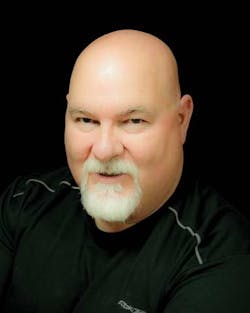At your tire dealership, the hardest thing to change is your mind
We all know there is a difference between changing your mind and making a change. Usually it’s easy to change your mind after you discover new or additional information about a subject or matter.
You may change your mind about where you are going to eat dinner after you learn that your favorite restaurant is having a special on your favorite meal. That little additional information means you are headed in a different direction. Easy choice.
Making a change is more permanent, usually requiring more information, and depending on the magnitude of the change, more time.
Some change is temporary and some change more lasting. Webster’s Dictionary has much to say about change: “To cause to become different; alter; convert, as success changed him; to pass from one phase to another, as the moon; something that is or may be substituted; something of the same kind but fresh and new.”
Often you hear someone say, “Oh, he’ll never change.” Well, everybody is changing at some rate; it’s all a matter of degree.
Change for the better
Last weekend I went to Staples Center in downtown Los Angeles to watch a basketball game. I attended the game with a young manager of a local tire store. Of course, it didn’t take long before we were talking about business. I met this young man while he was working as an assistant manager in other stores. Now that he is in charge, things have changed.
He has a high-energy personality with more than enough enthusiasm.
He began to talk about the changes he has instituted. He is excited about change. This is more than changing his mind; Webster’s calls this “making or becoming distinctly different and implies a radical transformation.”
In his previous positions, he was subject to the willingness of others to change. Interestingly enough, he shared with me the actual effect these changes are having with customers and employees. He quantified how the changes have affected his operation both monetarily and emotionally. Then, to top it off, he has shared the results with his previous employer locations, with no success. The other locations are not willing to change their mind(s), let alone pass from one phase to another, or make a distinct or radical change.
He invited me to visit his location and talk with his employees regarding these simple and effective initiatives. I was impressed by the high level of enthusiasm and the success rate.
As an example, I’ve sold extended warranty coverage for tires for years; I’ve done it personally, and I’ve trained hundreds and hundreds of others to make a proper presentation that results in a sale.
This young manager’s business is located in a less than desirable area of Los Angeles. During the basketball game, he claimed that he and his team offer the warranty to every customer; that’s every customer.
Well, I’ve heard that before; however, upon visiting the store a few days later, I can tell you the effort is there, and so are the results.
I’ve seen better programs, and I’ve seen better materials, and I’ve seen the best of the best. The reason for the success at his store is the mind-set in the store. The employees make the program work.
Here’s what I noticed that is a change from what I have seen in the past. They have made up their minds that each sale is different, that each customer is different, and that everybody’s budget is tight; so they are willing to change the price to meet the customer’s affordability factor.
I asked why they do this, and they responded, “Because everybody wants the extra coverage.” They added, “Even if we only make a dollar, this is a neighborhood store, and we have to take care of our neighbors.”
Distinctly different effort
They changed my mind; actually, they blew my mind. This is “distinctly different,” as Webster’s would define it. Most retailers have set prices, and they don’t deviate on warranty charges. Here, they are giving the customer the choice, and customers actually want the coverage. I asked when and why they started selling the warranty, and the reply was, “We haven’t been selling them that long, and we need to make extra money, plus we need to take care of our customers.”
When I was a salesman, I used to say, “I’ve never had a sales manager come to me and tell me to slow down.” Every business needs a healthy bottom line, and I’ve never heard of a tire store that couldn’t use more happy customers and a few more gross profit dollars every day. ■
Wayne Williams is president of ExSell Marketing Inc., a “counter intelligence” firm based in La Habra, Calif. He can be reached at [email protected].
Want to read more Counter Intelligence articles? See these:
